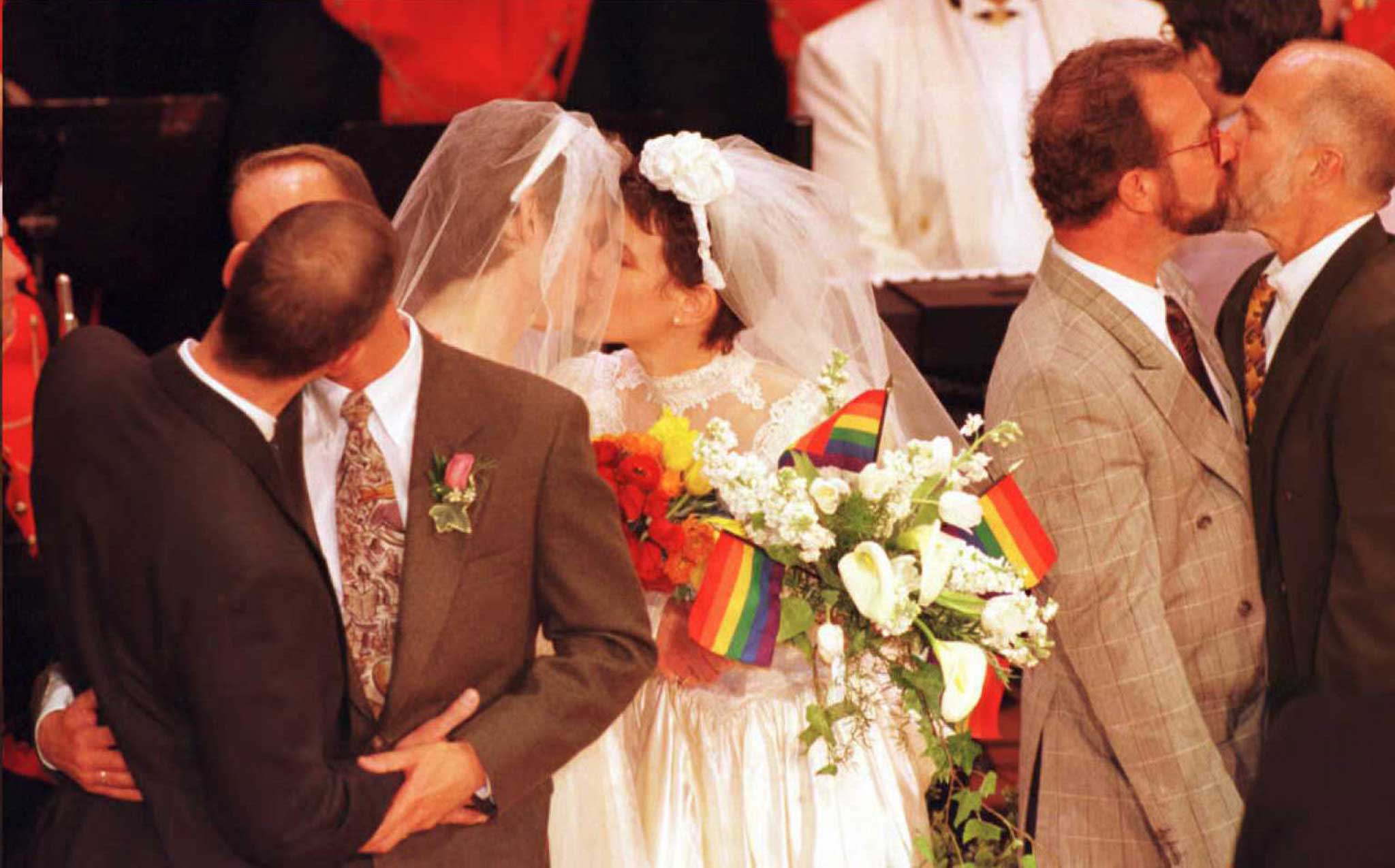The Tolerance Trap by Suzanna Danuta Walters, book review: A book that asks "should the gay community aim for 'normality'"?

Your support helps us to tell the story
From reproductive rights to climate change to Big Tech, The Independent is on the ground when the story is developing. Whether it's investigating the financials of Elon Musk's pro-Trump PAC or producing our latest documentary, 'The A Word', which shines a light on the American women fighting for reproductive rights, we know how important it is to parse out the facts from the messaging.
At such a critical moment in US history, we need reporters on the ground. Your donation allows us to keep sending journalists to speak to both sides of the story.
The Independent is trusted by Americans across the entire political spectrum. And unlike many other quality news outlets, we choose not to lock Americans out of our reporting and analysis with paywalls. We believe quality journalism should be available to everyone, paid for by those who can afford it.
Your support makes all the difference.Back in the 1970s Alan Wakeman, a member of the London Gay Liberation Front, produced a flow-chart mocking mid-century heterosexist platitudes called "What Exactly is Heterosexuality And What Causes it?" One of the explanations offered was this: "Many heterosexuals claim they were 'born that way'. Unfortunately, that doesn't hold water.
All human beings are a result of the interaction between their substance and the environment and heterosexuals, like the rest of us, must share in the responsibility for their condition."
That generation of gay activists were definitely not interested in getting married, joining the military or explanations/excuses for same sex desire. They didn't want to assimilate to 'normality' – they wanted to challenge it and frighten the horses. They didn't want to be tolerated – they wanted to liberate not just gays, but straight people too.
By contrast, many of today's gay activists constantly reassure the straights that that there's nothing radical or challenging about queerness, it's really just a form of misunderstood or confused heterosexuality. Gay people are just like straight people. And just want the opportunity to show that they're just like straight people. The only thing that is different about them is that (still undiscovered, but fervently believed in) "gay gene", whose main purpose seems to be to reassure straight people that queerness isn't catching – that it is locked up in gay bodies. Bodies that gays now want to lock up in gay marriages.
One happily hitched gay activist in the UK recently called for gay saunas to be closed down because we have gay marriage now, and their existence offered fuel for 'the homophobes'. The irony though was that in doing so he was of course acting exactly like a homophobe who demands that homosexuality be 'closed down' lest he be tempted to stray himself.
America was the home of the Stonewall Riots that kicked off 70s gay lib, but it's also the Rome of this current wave of gay conservatism, having become a kind of mirror image of the religious right there and its insistence that homosexuality is "a choice" (i.e. a sin) – claiming that, in effect, God/Darwin made them gay. So it's refreshing that an American academic, Suzanna Danuta Walters, has come forward with the heretical tract called The Tolerance Trap: How God, Genes and Good Intentions are Sabotaging Gay Equality questioning key assumptions, particularly that gay marriage rights are the ultimate gay right.
She argues that the gay rights movement has settled for tolerance rather than "a robust claim to full citizenship, civil rights, and recognition for the difference they bring to the table". She also wonders whether the goal of tolerance might be demeaning, making the point that you only 'tolerate' something that you don't like.
Sometimes Walter's argument meanders, but she's at her most pertinent when questioning those twin pillars of current American gay orthodoxy, gay genes and gay marriage, which are mutually reinforcing. Gay genes must exist because they mean you can get gay marriage because you're "immutable" – and gay marriage, rather horrifyingly for a feminist such as Walters, has become the whole point of the American LGBT movement.
In a section called 'Do These Genes Make Me Look Gay?' Walters analyses the way the research is trumpeted by the media, stripped of the careful qualifications the scientists usually present their research with – and of course the ultimately decisive importance of that interaction between substance and environment – to tell people what they want to hear: that being gay is innate and inborn. The wider concerns of neurobiologists such as Victorio Gallo that "the definitions of heterosexuality and homosexuality are ambiguous, therefore a scientific sample population is almost impossible to create" are trampled underfoot in the rush to the reassuring headline.
The media's definition of homosexual is usually: boys with Barbies: "Almost every single popular presentation of the gay-gene argument begins and ends with a narrative of 'gender difference,' thus effectively conflating sexual desire, sexual-object choice, gender identity, and gender performance..." So effeminacy in boys has to be explained away – but blokishness in girls is overlooked.
Walters, a mother herself, highlights the appalling eagerness of gay marriage advocates to talk about the "misery" of "bastard" children deprived of the "legitimacy" of marriage, and the way that different ways of coupling are devalued in the rush to make a failed institution the measure of gay everything. She also fingers the symbolic popularity of gay marriage with liberal, and liberal conservative straight people, such as Mr Cameron: "…supporting gay marriage proves how uber-tolerant one is but cannily avoids getting caught up in the messiness of gay difference, gay sex, gay liberation." Gay liberation? How quaint!
Join our commenting forum
Join thought-provoking conversations, follow other Independent readers and see their replies
Comments